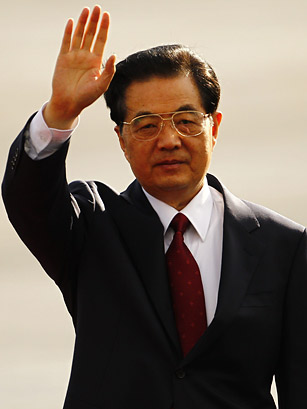
In what was likely his last year as General Secretary of the Chinese Communist Party, President Hu Jinato kept on keeping on. The decade under his stewardship, which began in 2002, has heralded China's rise as a budding global hegemon. In 2012, Hu is expected to hand over power to Xi Jinping, a carefully groomed successor who operates somewhat in Hu's quiet, tidy mien. But 2011 was no easy procession for China's head of state: the echoes of pro-democracy uprisings in the Middle East reverberated in Beijing and led, as often happens in China, to an outsized, conspicuous crackdown on activists, lawyers and dissidents. And while the international community furrowed their brows at China's inability to cope with the threat of dissent at home, strategists overseas stoked concerns over the threat of China's expanding naval ambitions abroad. U.S. President Barack Obama's November tour of Australia and Southeast Asia signaled Washington's intent to reassert itself in Asia-Pacific. And while Europe's debt-ridden countries looked to cash-rich China, cap in hand, Hu and his cohorts struggled to come to grips with an economy that may finally be showing signs of burn out. Hu presided over an ascendant China, but it's far from supreme.